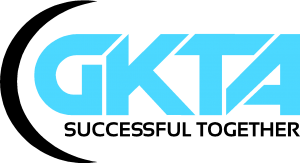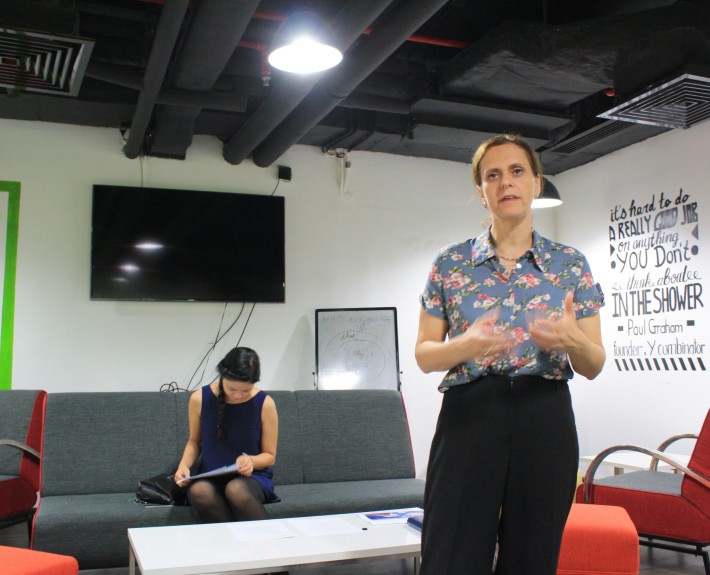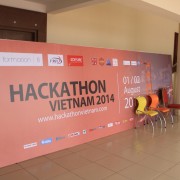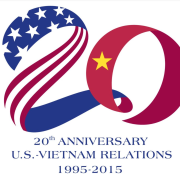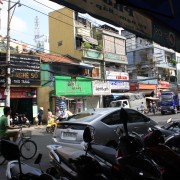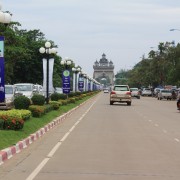Startup Israel–2014 Competition
On October 6, 2014, Hub.IT hosted an information session about Startup Israel–2014 Competition, an initiative organized by the Embassy of Israel in Vietnam in collaboration with Ministry of Science and Technology and Business Studies and Assistance Center (BSA). The information session was an opportunity for startup teams to ask Ambassador H.E Ms. Meirav Eilon Shahar questions about the competition as well as to learn more details about the application requirements.
During the event, Ambassador H.E Ms. Meirav Eilon Shahar (who has been Ambassador to Vietnam for about two years) explained that the competition launched about a month ago and it’s the first program of its kind that the Israeli Embassy in Hanoi is promoting. According to Hub.IT, approximately 30 startups were represented in the audience. The competition’s deadline was recently extended to accommodate an influx of new candidates.
The competition specifically seeks Vietnamese seed stage companies. The interesting feature of this competition is that the startups get to choose what to send to the review panel—so they need to determine the best way to present their startup’s idea, team, product, competitive advantage, etc.
The winners will be announced in mid-November and they will travel to Israel in December to take part is what has been termed a “study tour.” The exact details are unknown but suffice to say the Vietnamese entrepreneurs will meet similar startups, visit with incubators, take in lessons learned and connect with businesses in Israel, which already has a global outlook for its startup community.
Originally, the plan was to send startup founders for a few months to work with startup companies in Israel but that was deemed unrealistic due to the time commitment required. So, the project had to be adapted to the Vietnamese reality of being busy with managing a startup. Now, one representative from each team from each sector will go to Israel for primarily networking, learning from adaptation, and knowledge exchange. Ultimately, the organizational partners want to see the results of this first “class.” Maybe the results will be too limited so the project can be tweaked in the future or additional resources (except financial) can be added, such as tutoring.
The hope for the project is that the Vietnamese founders have the study tour to learn about the ecosystem and to make connections with Israeli founders. One of the big lessons learned is that startups involve failure—but despite failing one should try to improve for the next time.
According to a handout that was distributed to the participants:
“The competition brings together Vietnamese startups throughout the country to compete for the opportunity to take part in an intense startup study in Israel.
Only four representatives from four winning teams selected from the shortlist of 8 teams will go to Israel for the startup study tour in December 2014.
In order to eligible to apply for the competition, applicants need to meet the following criteria:
Age of submitting founder: 20-40
Sectors: Web/Mobile/Agriculture/Life Science
Stage of Startup: Seed Stage
Participants are responsible for reserving their intellectual property rights to the submitted products.
At least one member of the founding team of the startup should be fluent in English.”
Israeli Vietnamese Connection
The purpose of this project is to share experience with Vietnamese entrepreneurs and to expose Vietnamese startups to the Israeli startup scene. The startup scene in Israel is privately-led by businesses—although at a time it was largely government directed. The Israeli market is small; its population is approximately 8 million so everything has to be exported globally; this outward focus is true for all Israeli businesses. So in a sense, Israeli startups need to have a global view even from the onset whereas American startups can focus on the available 300+ million population. Indeed, even the VC presence is difficult in Israel but it was harder before; Israel in the 1980s was very different than today’s Israel—it improved over time, developed competition, and leveraged a strong teamwork ethic to foster innovation.
Israel is currently experiencing a debate over whether exit events by local startups and the resulting outflow of human capital is taking away innovation. Is it better to keep innovation in Israel at the expense of a potential exit? Startups in Israel simply go to US and maybe Japan. However, traditional entrepreneurs come to Vietnam as part of delegations and invest as small businesses.
Ambassador H.E Ms. Meirav Eilon Shahar revealed that the Minister of the Ministry of Science and Technology was in Israel last week for five days. During this time, the first joint committee was formed and Minister Nguyen Quan met with Israel’s chief scientist to learn more about the Israeli startup sector and the unique ecosystem in Israel. As a result, Israel and Vietnam signed a Memorandum of Understanding (MOU) to increase collaboration between the two nations in the fields of science and technology. In Vietnam, the Israeli Embassy in Hanoi is concentrating in private sector because government support is currently limited for startups.
A Winning Formula
Flexible criteria was purposely selected to be as inclusive as possible in order to spur creativity for the Vietnamese entrepreneurs who might connect with Israeli startup. What is important for startups to remember is to have the right product/market fit. It may be that the most important life experience is to go to another environment than one’s home country—in this instance for Vietnamese entrepreneurs to go abroad. Bobby Liu, founder of Hub.IT, explained, “I realized that we are only a few years behind Singapore, which started its accelerator in 2012. Being successful requires a lot of confidence. We have no choice but to explore since Vietnam may not have a suitable environment. Go somewhere else to explore: that’s what entrepreneurs do.”
Failure is a part of startups; entrepreneurs need to see and learn how to improve for the next time. It’s a long term haul—not a short-term win. One industry that Israel has focused on to grow and “own” is Homeland Security; in fact, Israel will be hosting the Israel Homeland Security convention next month which features information on cyber security, emergency preparedness, and law enforcement.
Considering there is no signup form, the challenge for startups is to submit an application that best portrays the product to the judging panel. So, 10 page proposals are out and the idea should be optimally refined to a single sentence of explanation (with supporting information). Hopefully, better judgment prevails here.
Interested parties can apply as outlined below (via handout):
An application in both English and Vietnamese includes general information about the startup and thorough business plans in PDF.
A video clip in English, no more than 2-3 minutes long, explaining why their company should be picked to go to Israel.
After screening of applications and video clips, 8 finalists will have interviews (in English) with a board of judges including representatives from the Embassy, the Ministry, and BSA. The final interview stage consists of presentation and Q&A session with judges.
Applications needs to be sent by email only to the following address: political@hanoi.mfa.gov.il
For more information, please contact Ms. Phan Thuy Trang; Mobile: 0914 551 528; Email: political@hanoi.mfa.gov.il or visit the Embassy Homepage or the Embassy’s Facebook page.
The deadline for submission is October 15, 2014 and only shortlisted candidates will be contacted.
